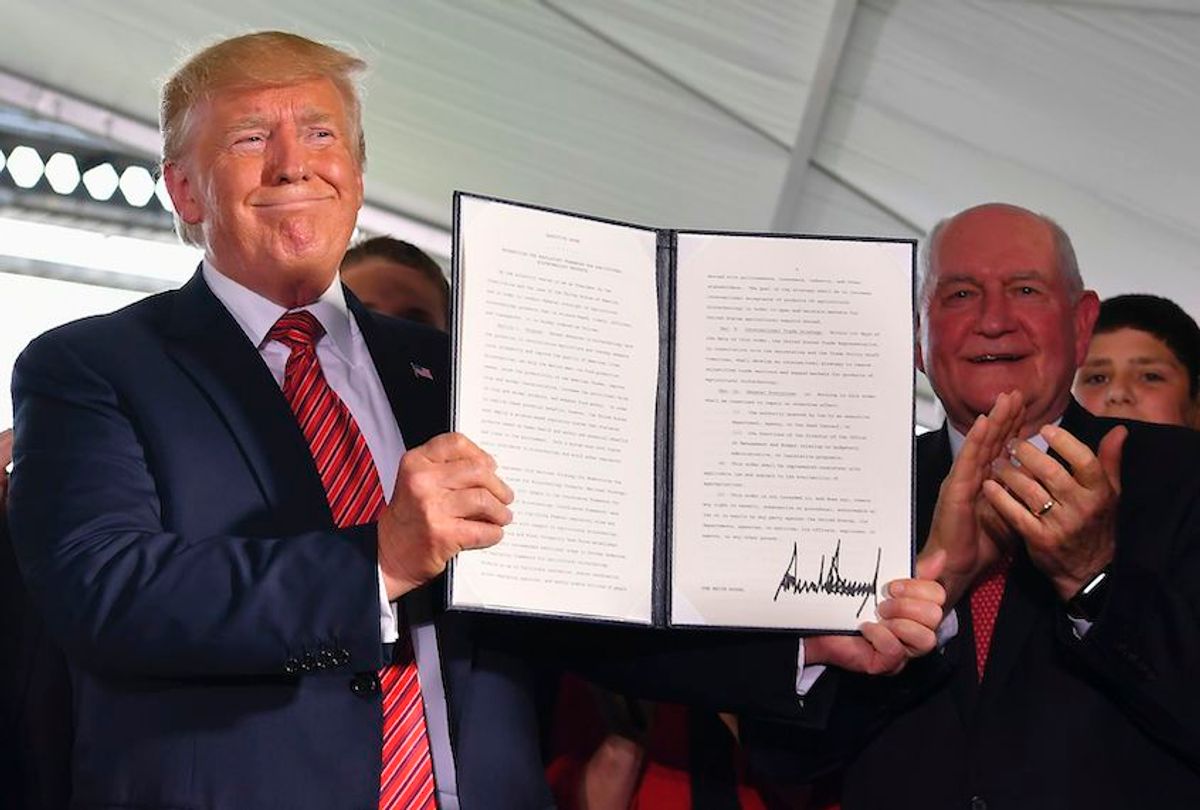The Trump administration made clear this week that it has no plans to scrap — or, at the very least, delay — a rule change that could strip federal food assistance from over a million people in the United States as the coronavirus spreads across the nation, heightening the need for measures to protect the most vulnerable from the economic fallout.
Sonny Perdue, head of the U.S. Department of Agriculture, told House lawmakers during an Appropriations Subcommittee hearing this week that the Trump administration considered pushing back implementation of the rule, set for April 1, but ultimately decided against it.
"This is unconscionable," advocacy group Latino Victory tweeted Thursday.
The rule would impose more strict work requirements on Supplemental Nutrition Assistance Program (SNAP) recipients and constrain states' authority to waive those requirements — a potentially disastrous change in the midst of a pandemic."Really it's a cruel rule, taking food out of the mouths of hungry individuals," Rep. Barbara Lee (D-Calif.) told Perdue during the budget hearing on Tuesday.
Lauren Bauer, a fellow at the Brookings Institution think tank, told BuzzFeed that she estimated prior to the coronavirus outbreak that 1.3 to 1.5 million people could lose federal nutrition assistance under the Trump administration's SNAP rule change. The Agriculture Department's own estimate indicated that the rule would strip benefits from more than 700,000 people.
"That number is going to be much, much higher" due to COVID-19, Bauer said. "It's going to cause harm both to the people who are eligible for SNAP, but it's also going to cause harm for the economy."
House Democrats, meanwhile, are pushing for a sweeping emergency package that would waive work requirements for SNAP and expand nutrition assistance as the U.S. struggles to contain the coronavirus outbreak.
In a Dear Colleague letter Thursday, Pelosi expressed confidence that congressional negotiators are "near to a bipartisan agreement" on the emergency legislation and said she expects a House vote on Friday.
But Republican leaders in the Senate and President Donald Trump have publicly dismissed the package, so it is unclear which elements of the legislation will become law.
Senate Majority Leader Mitch McConnell (R-Ky.), who delayed the Senate's scheduled March recess but allowed senators to go home for the weekend, called House Democrats' Families First Coronavirus Response Act an "ideological wish list."
Trump described the emergency relief package, which also includes increased Medicaid funding and paid sick leave, as Democrats' attempt "to get some of the goodies that they haven't been able to get for the last 25 years."



Shares